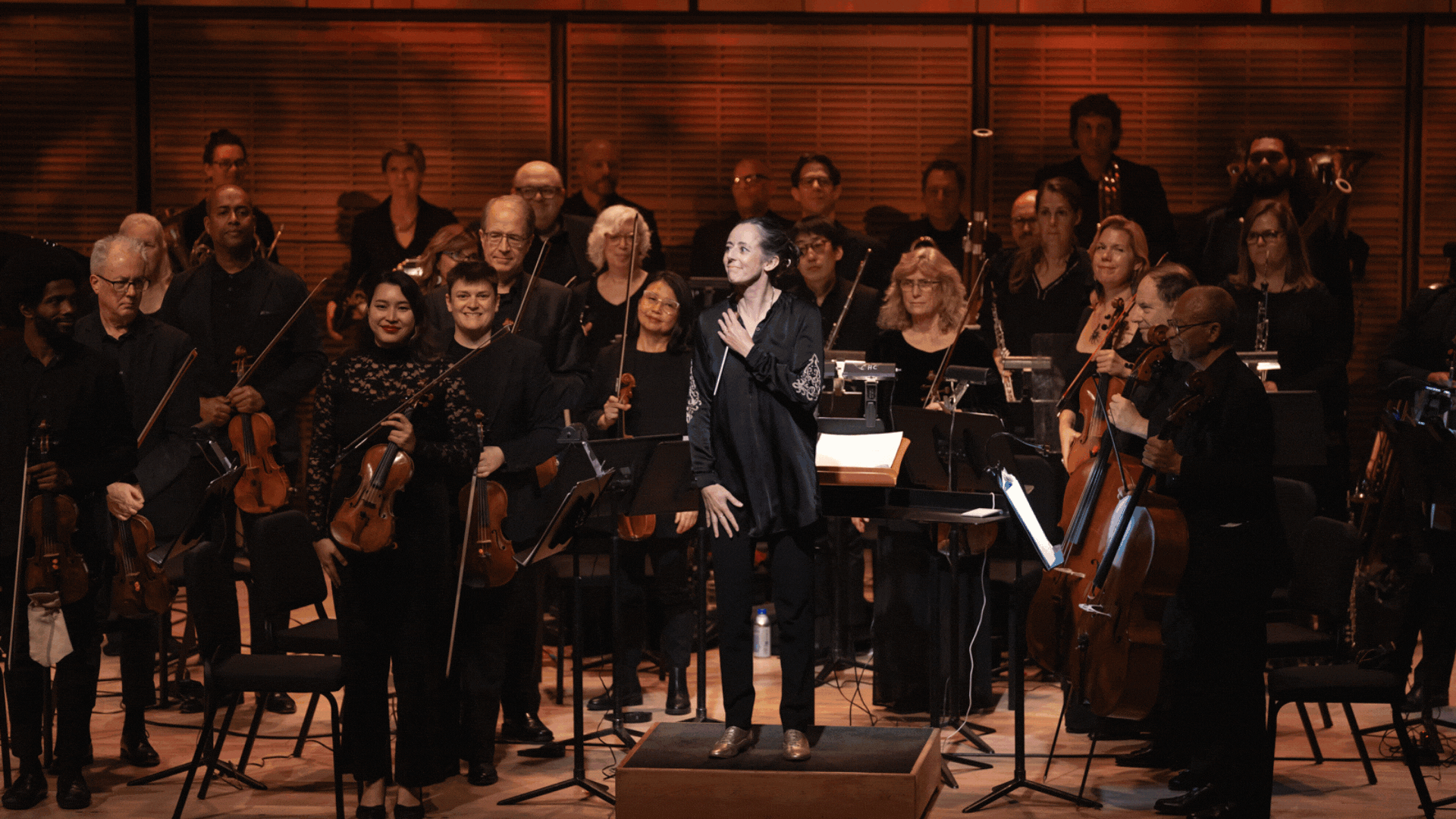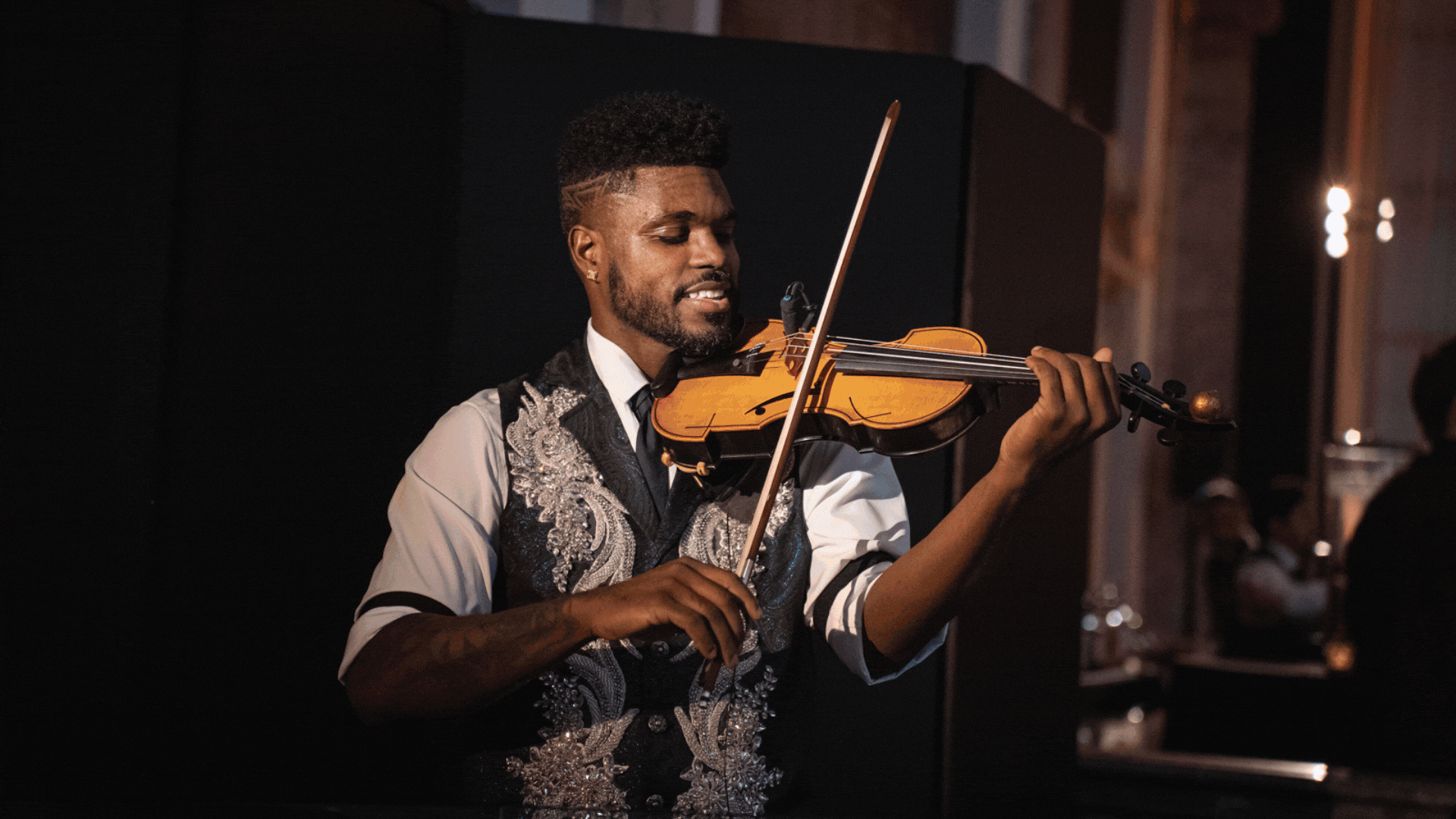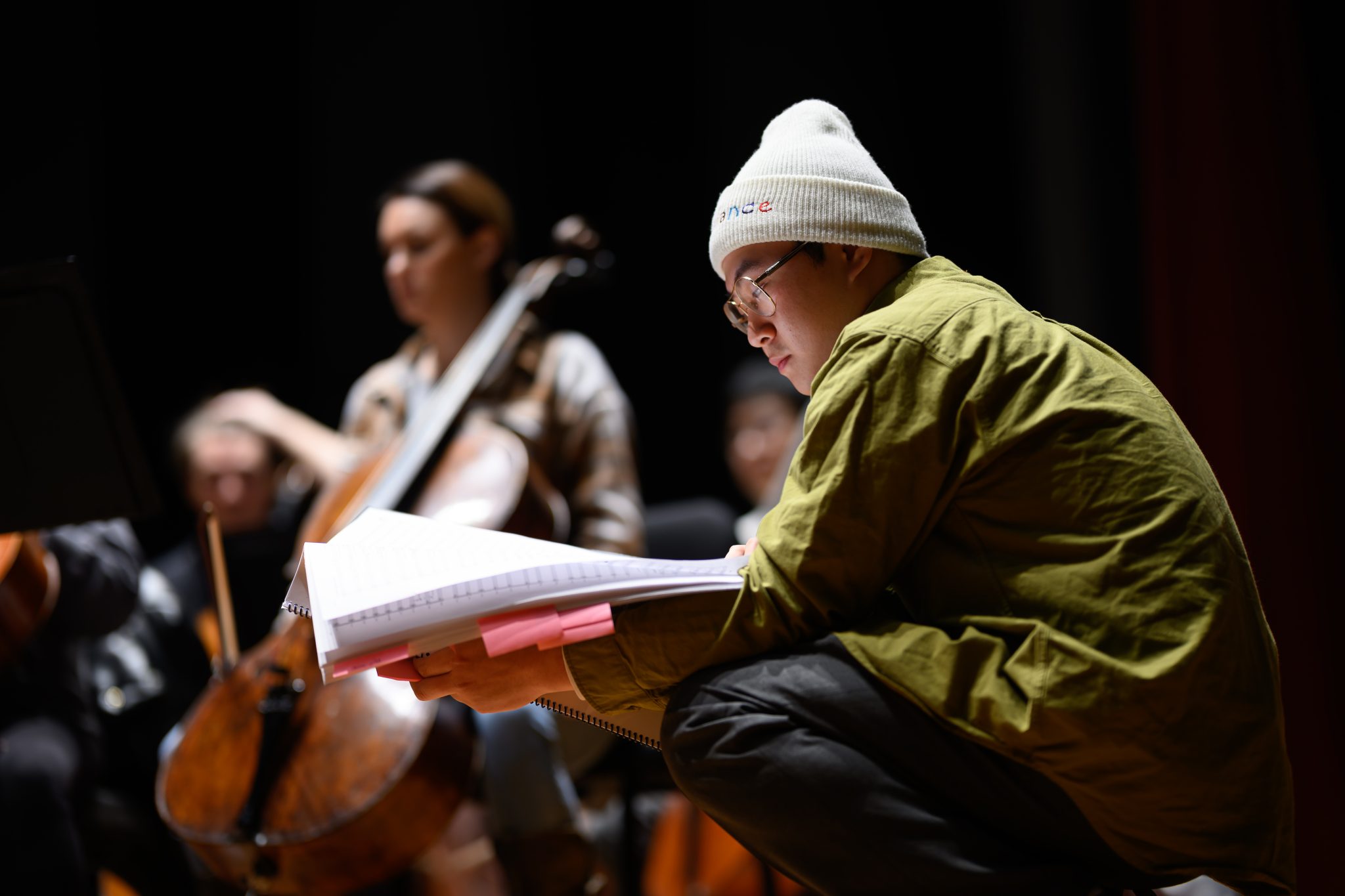Orchestrating Ives


New England Echoes, American Composers Orchestra’s upcoming concert at Carnegie Hall, is a celebration of composers with ties to New England. It includes new orchestrations of Charles Ives songs for mezzo-soprano Jamie Barton by composers Jonathan Bailey Holland, Hannah Lash, and Hilary Purrington. We will also feature the world premiere ofPurrington’s Harp of Nervesfeaturing guitarist JIJI as well asthe New York City premiere of Matthew Aucoin’s Evidence.
Jamie Barton chose her favorites from Ives’ 114 Songs, and then that list was passed on to the three composers, resulting in the following orchestrations:
- Holland: The Cage, The Housatonic at Stockbridge
- Lash: Autumn, Immortality
- Purrington: Two Memories: (a) Very Pleasant (b) Rather Sad
In an interview with these three composers, our Director of Emerging Composers and Diversity, Aiden K. Feltkamp, asked them about the process of orchestrating Ives’ work. Each composer was asked the same questions; below are the highlights of their responses.
Feltkamp: What first struck you about the song that you’ll be orchestrating?
Purrington: I first heard “Two Memories: (a) Very Pleasant (b) Rather Sad” performed in May 2016 by soprano Jessica Pray. What struck me was the emotional range of the song — it demands so much of the singer, and I was mesmerized by Jessica’s extraordinary interpretation and performance.
Lash: Both [“Autumn” and “Immortality”] are incredibly expansive…”Autumn” less obviously so — it’s more sanguine on the surface and, I suppose, more pastoral. But once you begin digging beneath the immediate surface, you can hear the typically Ivesian structural irregularity: strange ways in which the song seems to float above logical construction. It is beautiful and weird, and rather dreamlike. “Immortality” is overtly very strange and sad. It is deeply disconcerting both textually and musically. In some ways it makes no sense. It is music that seems to exist on a plane beyond the physical/metrical/harmonic one we are used to. It feels unhinged from reality.

Feltkamp: How are you going about arranging these songs? What has been your process?
Holland: The difficult task is that in both [“The Cage” and “The Housatonic at Stockbridge”], the vocal line intentionally does not always line up with the piano. Ives leaves some degree of freedom between the flow of the vocal line and the other music. The logistics of translating this to the orchestra, in which there are many, many more people that have to all line up, requires a bit more specificity than Ives put in the original score. Ultimately, that means that the orchestration becomes, in essence, a written-out interpretation of the song, because the orchestrator/arranger has to make decisions that affect the performance of the work which Ives initially left to the performers.

Feltkamp: What element of the song didn’t strike you immediately but began to emerge as you studied it?
Purrington: I sang through the piece a lot. (I’m sure my neighbors appreciated this.) Although I’ve known the song for a while, I had never internalized it in this manner, and I think this definitely impacted my perspective on the music.
Feltkamp: What excites you most about arranging these songs?
Holland: Ives’s music is often quite evocative, and the opportunity to orchestrate the songs required that I clarify what I was hearing in his work and then realize it via the orchestration. I also feel that were I to do both orchestrations again, that there is enough depth to his work that I could choose several different ways of interpreting and orchestrating the songs.

Feltkamp: What are the joys of arranging something written by a revered composer?
Lash: I don’t think I really want to put it in these terms. I admire a lot of composers. A lot of material is interesting and can be reimagined in weird and different ways in an “arranging” context. I have never found it very useful to think of the “greats” as “greats” per se. I think of the individual musical context and get lost in it — I lose myself, and I seek to lose the other composer, too, in the service of the music. Otherwise I’m not paying attention to the music I love because I’m too caught up in thinking I should revere it.
Holland: If something is revered, often that reverence implies that the work is untouchable because it is already in its ideal form. But recreating or reinterpreting these works allows one to both gain a deeper understanding than would be possible by simply analyzing the work, and it allows the original work to remain vital and “alive,” and not just frozen in time.
Purrington: I think the joy in orchestrating this song comes from the exquisiteness of the song itself. It’s this perfect little gem that manages to convey so much over a very brief span of time.
Feltkamp: What are the challenges?
Purrington: Scale and pacing have been challenging for me. An orchestra is far larger than a piano, and I think this impacts a listener’s sense of time. When you’re hearing a sound that’s richer and more complex than a solo piano, I think you need an extra moment to absorb and process that. The pace of “Two Memories” works well as an intimate song for voice and piano, but when scaled up for orchestra, it feels rushed. So, I’d added extra measures here and there to address this, and I hope the addition of extra time helps preserve the pacing of the original version.
Lash: So many, and yet you dive in and you find answers.
Holland: As I mentioned in a previous answer, Ives often leaves out some details that the performers negotiate during performance, but that creates challenges when you have an entire orchestra involved.
Feltkamp: When you hear the piece in rehearsal, what will you be listening for?
Purrington: I’m always listening for balance — what did I get right, and how did I miscalculate?
Lash: Whether my new imagining of these songs is able to illuminate something about the music in a way that is true and meaningful.
Feltkamp: What are you most looking forward to in this project?
Lash: Really hard to answer. I had no expectations going in. I became deliciously absorbed in a rather playful engagement with ideas. Sometimes it felt as though my goal was to stick close to the surface of what Ives had written. Other times, it felt much truer to be more fanciful in the way I approached colors and textures, suggesting by rather distant means the same characters and figures that we hear in the piano writing.
Purrington: I’m very excited to work with Jamie Barton. I deeply admire her artistry and commitment to promoting diversity within classical music, and I’m thrilled that ACO is working with her!
Holland: Every performance is exciting, and as this will be my first time working with the ACO, I am very much looking forward to interacting with the musicians. I also look forward to hearing how the other composers involved in the project choose to interpret Ives’s work.
Hear these orchestrations come to life on November 13 at our New England Echoes concert. For more information and tickets, go to our website at bit.ly/ACOEchoes.
Corporate gifts to match employee contributions are made by Goldman Sachs, Deutsche Bank, Triton Container International Incorporated of North America, and Neiman Marcus.
Public funds are provided by the New York City Department of Cultural Affairs in partnership with the City Council, and the New York State Council on the Arts with the support of Governor Kathy Hochul and the New York State Legislature, Office of Brooklyn Borough President Reynoso, and the National Endowment for the Arts.






